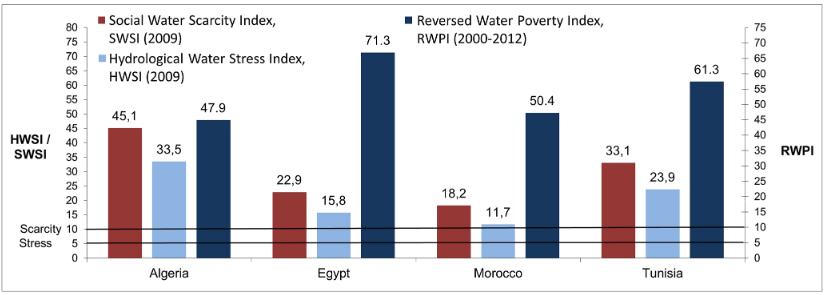Abstract
North Africa is considered a climate change hot spot. Existing studies either focus on the physical aspects of climate change or discuss the social ones. The present article aims to address this divide by assessing and comparing the climate change vulnerability of Algeria, Egypt, Libya, Morocco, and Tunisia and linking it to its social implications. The vulnerability assessment focuses on climate change exposure, water resources, sensitivity, and adaptive capacity. The results suggest that all countries are exposed to strong temperature increases and a high drought risk under climate change. Algeria is most vulnerable to climate change, mainly due to the country’s high sensitivity. Across North Africa, the combination of climate change and strong population growth is very likely to further aggravate the already scarce water situation. The so-called Arab Spring has shown that social unrest is partly caused by unmet basic needs of the population for food and water. Thus, climate change may become an indirect driver of social instability in North Africa. To mitigate the impact of climate change, it is important to reduce economic and livelihood dependence on rain-fed agriculture, strengthen sustainable land use practices, and increase the adaptive capacity. Further, increased regional cooperation and sub-national vulnerability assessments are needed.

Schilling, J., Hertig, E., Tramblay, Y., & Scheffran, J. (2020). Climate change vulnerability, water resources and social implications in North Africa. Regional Environmental Change, 20(1), 15. doi: 10.1007/s10113-020-01597-7 – Go to article
